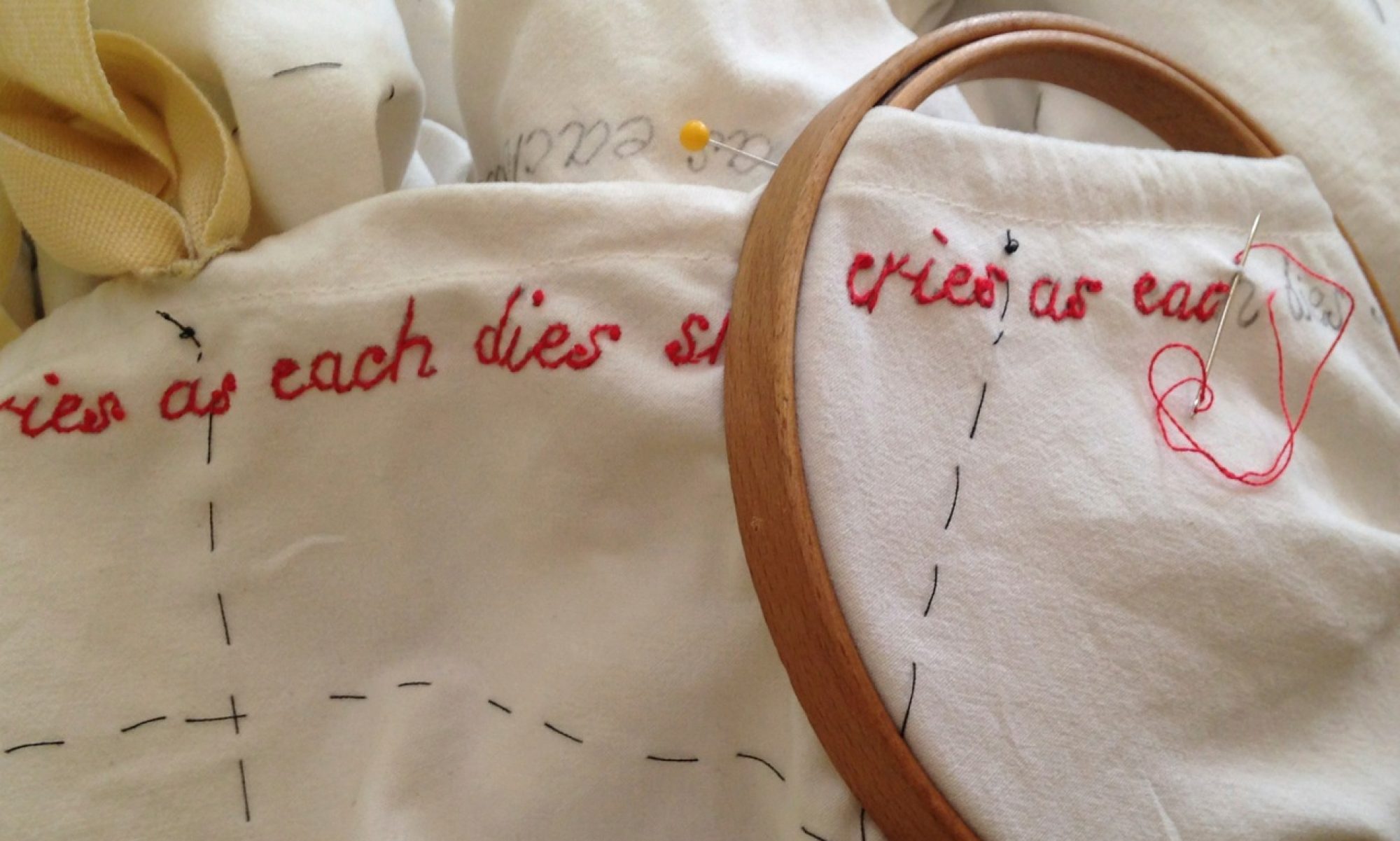Sew The SEEDS: Saving Earth’s Endangered & diverse species started as a community arts quilt project about endangered species…because every species has a story.
Here is the original post on the first Sew the SEEDS Project.
Sew The SEEDS: Saving Earth’s Endangered and Diverse Species is a community arts quilt project about endangered species.
We are currently in the midst of the greatest mass extinction since the dinosaurs. Scientists predict that within the next 50-100 years as many as 40% of all species are likely to become extinct. In addition, loss of diversity is felt to be as much of a global threat as climate change. For me this is personal. Somehow, more people need to know about this and become involved.
For all their quaintness and coziness, quilts and “women’s” handcrafts have a long history of use as a form of political activism. By far, the most incredible example of quilt as activism is the Names Project, commonly referred to as the AIDS quilt. It started with a candlelight march on San Francisco’s City Hall. People wrote the names of loved ones lost to AIDS on paper, and taped them to the Federal Building. Activist Cleve Jones thought it looked like a giant quilt. From this idea the Names Project was born. And what started with one panel, a 3’x6’ piece the size of a coffin and spray painted with a single name, grew to become the largest community arts project in the world. The Names Project Quilt, with more than 94,000 names, raised awareness of the enormity of the AIDS crisis, and helped to reduce the stigma originally connected to the disease. It has helped to raise more than $4,000,000 for direct services to people with AIDS , and has become a place where people can celebrate and honor their lost loved ones. It is truly a global phenomenon.
Our Goals:
To follow the model of the AIDS Names Project Quilt to raise awareness of the threat of mass extinction and the dangers of loss of diversity. To give names and stories to each of the increasing number of threatened species on earth today.
To work with teachers and students to research endangered species, so that students can learn why a species is in danger, what role human beings play in its decline, what can be done, and why it is important.
To use the grand old tradition of quilting, a nexus between art, activism, and community building, to create beautiful fabric panels to be shared, displayed, and used in every way possible to spread awareness of the threats of extinction.
To use our website as a virtual collection point for all panels and student information, and to use the website to spread our project and our message far and wide.
To inspire artists, craftspeople, animal and nature lovers, activists, and environmentalists to create their own panels as a means to further spread awareness…. because every species on earth deserves our recognition and deep respect.
MAKE YOUR OWN PANEL:
Design the panel. If you’re doing an individual species include common name, scientific name, and anything else you want. A panel for a particular genus or ecosystem is great as well.
Choose your material. Medium weight cotton works best. Think about the source of all materials. Consider reused and repurposed fabrics. Each panel should be 3’x6’, plus a couple of inches for finishing. A backing is a good idea; batting is not necessary.
Create the panel. Techniques can include appliqué, paint, stenciling, collage, and photos. Fabric glue works well, but thick paint can crack and peel. Photos can be scanned and printed as iron-ons. For schools, sign the back of the panel with school, grade, teacher’s name, and all students’ names. Individuals, let us know your name and anything else you feel is pertinent.
Find out about your species, why it is in danger, and what can be done to help. Report your findings. This is more for the schools, but honestly this is all about raising awareness and is good for individuals as well
Let us know us what you are doing, and send pictures of your panels, and what you’ve learned to Sew the SEEDS. We’d love to see works in progress too!
Send everything to:
info@sewtheseeds.org
